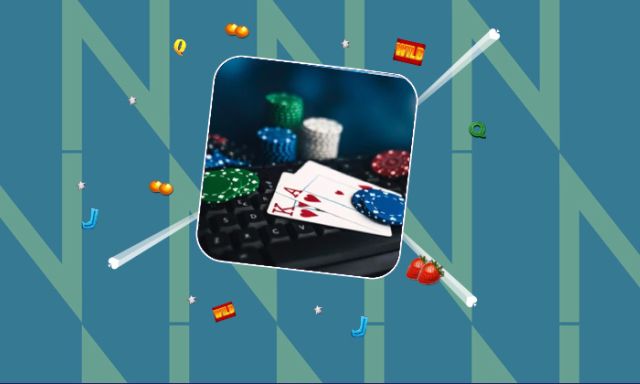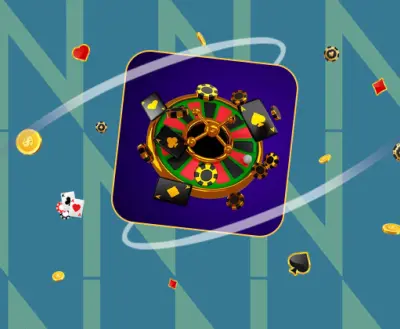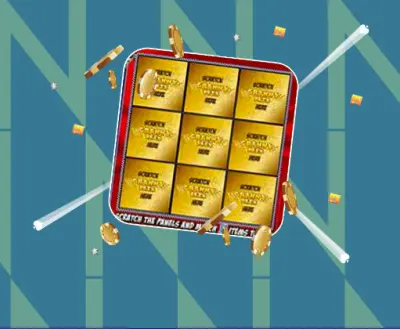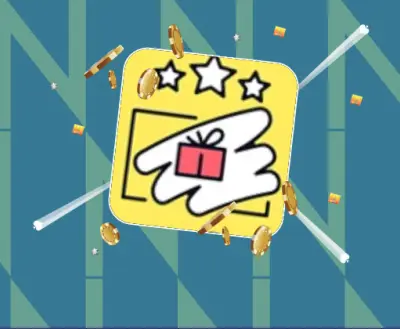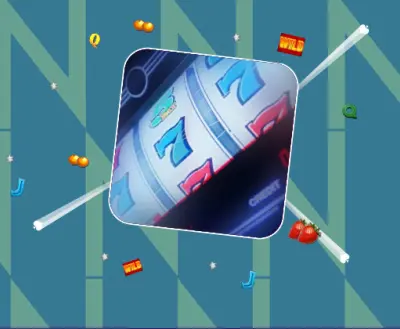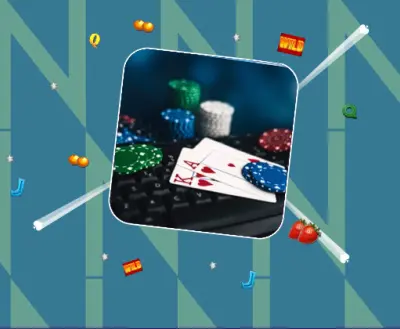Blackjack Terms Meaning: Terms, Slang, and Lingo
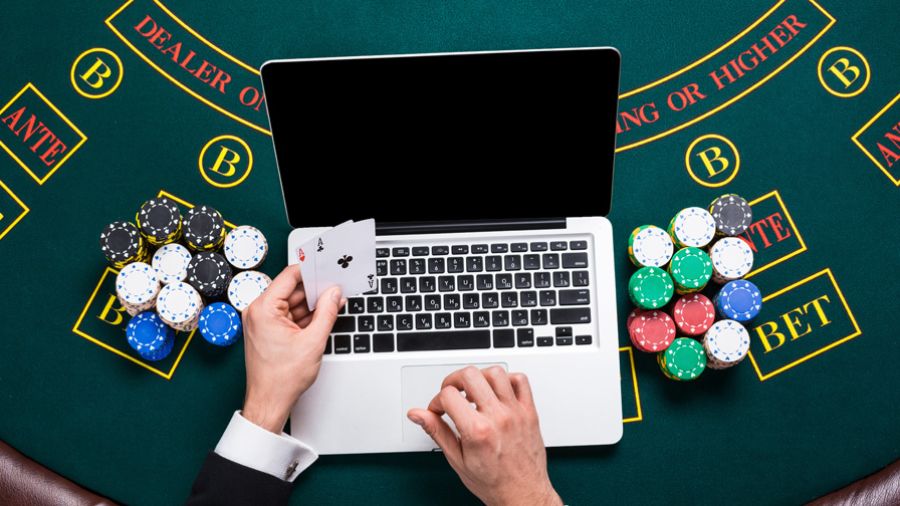
Welcome to our guide on blackjack terms and their meaning. At Gala Casino, we believe that understanding the jargon can significantly enhance your gameplay and performance. Our guide will provide a comprehensive breakdown of essential blackjack terms, slang, and lingo that beginner players should grasp to fully appreciate this popular game.
Blackjack, a staple at both physical and online casinos, holds a special place in the hearts of gaming enthusiasts worldwide. Its combination of luck, strategy, and the thrill of quick decision-making captivate millions of players globally.
The key to your success in the game is not only understanding the basic rules but also familiarising yourself with the blackjack language. This language, filled with distinctive phrases, expressions, and terminology, forms the very fabric of the game.
With our guide, you will delve into the fascinating world of blackjack jargon, providing you with the tools to stand shoulder to shoulder with the most experienced players.
Essential Blackjack Terms for Beginners
If you're a beginner just dipping your toes into the thrilling waters of blackjack, understanding the fundamental terms is the first step to becoming a savvy player.
The beautiful simplicity of blackjack lies in its objective - to have a hand that totals closer to 21 than the dealer's, without exceeding 21. To navigate your way through the game, here are some essential terms you should know:
- Hit: This term is used when you want to request an additional card from the dealer. When you 'hit', you're aiming to increase the total value of your hand without going over 21. For instance, if your hand totals 16, you might want to 'hit' in the hope of getting closer to 21.
- Stand: On the contrary, when you're content with your hand and do not wish to receive any more cards, you 'stand'. A player generally decides to 'stand' when they're close enough to 21 and fear that an additional card might make them bust (go over 21).
- Double Down: If you're feeling confident about your hand after the initial deal, you might opt to 'double down'. This term implies doubling your initial bet and committing to 'stand' after receiving one, and only one, additional card.
- Split: If you're dealt two cards of the same value (like two 8s or two Queens), you can choose to 'split' them into two separate hands. After 'splitting', you place an additional bet equivalent to your original wager for the new hand. You then proceed to play these hands separately, potentially doubling your chances of winning.
- Blackjack: The term 'Blackjack' is not just the name of the game; it also refers to the best hand you can possibly get, which consists of an Ace and a 10-point card (a 10 or any face card). This hand automatically totals to 21 and is usually an instant win, unless the dealer also has a blackjack.
Blackjack has a specific glossary that players should familiarise themselves with. Here are two more important terms that beginners need to understand:
- Insurance: When the dealer's up-card (visible card) is an Ace, you're offered 'insurance'. This is a side bet, independent of your primary bet, that the dealer will hit a blackjack (a hand totaling 21 with just two cards: an Ace and a 10-value card). If you choose to take 'insurance', you place a separate bet, up to half of your original wager. If the dealer does get a blackjack, your 'insurance' bet pays 2:1, effectively covering your initial loss.
- Surrender: The 'surrender' option is like a safety net in blackjack. If you think your hand stands little chance of winning against the dealer's, you can opt to 'surrender'. By doing so, you forfeit your hand immediately, but only lose half of your original bet. However, not all blackjack games offer this option, so it's best to check the game rules before you begin playing.
Advanced Blackjack Terms
As you level up your blackjack skills and start feeling comfortable at the tables, you'll naturally encounter a slew of more complex terms. These terms are integral to different strategies that players employ to enhance their winning potential. Let's dive into a few:
- Counting Cards: Contrary to popular belief, card counting is not illegal; however, it is frowned upon by casinos. It's a strategy that involves keeping a running count of high and low value cards remaining in the deck. By doing so, players attempt to predict the likelihood of receiving a beneficial card in subsequent deals. Remember, though, card counting requires sharp memory and quick calculations, and it's more suitable for single-deck blackjack games.
- Hole Card: In blackjack, the dealer deals two cards to themselves, one face-up and one face-down. The face-down card is known as the 'hole card'. In certain blackjack variations, if the dealer's face-up card is an Ace or a ten-value card, they peek at the 'hole card' to check for blackjack. If they hit blackjack, the round ends immediately unless the player also has a blackjack.
Shuffle Tracking: This is a more advanced and less common technique than card counting. Shuffle tracking involves keeping track of certain sequences or clusters of high-value cards through the shuffling process. It's a skill that requires intense concentration and quick mental agility, and it's typically practised by experienced blackjack players in live casinos.
Strategies Involving Advanced Blackjack Terms
Understanding the jargon is just one part of the equation. Here are some tips on applying these advanced blackjack terms strategically in gameplay:
- Card Counting: With practice, utilising card counting can provide a potential edge over the house. A high count (more high-value cards left in the deck) could signal a good time to increase your bet, whereas a low count (more low-value cards remaining) might advise caution and smaller bets. Remember, though, casinos do not take kindly to card counting, so it's vital to practise this technique subtly and respectfully.
- Surrender Smartly: Not every hand dealt is a winner. It's crucial to recognize when your hand has slim odds of winning and surrendering is the best option. The strategic surrender can save half your bet, which, when accumulated over time, can significantly reduce your losses. A basic rule of thumb is to consider surrendering if your hand totals 16 and the dealer's face-up card is 9, 10, or Ace, or when your hand totals 15 and the dealer's face-up card is a 10.
Blackjack Slang and Expressions
Common Blackjack Slang and Jargon
Playing blackjack is not just about understanding the standard terms. It also involves getting familiar with a unique set of slang and jargon, which can add a whole new dimension of fun and camaraderie to your gaming experience. Here are a few you might encounter:
- Bust: In the world of blackjack, 'busting' isn't a good thing. If the total value of your hand exceeds 21, you've 'busted'. This means you've gone over the target number and automatically lose your bet, regardless of the dealer's hand.
- Push: It's not quite a win, but it's not a loss either. A 'push' occurs when you and the dealer end up with the same hand total. When this happens, it's essentially a tie, and your original bet is returned to you.
- Shoe: The 'shoe' isn't something you wear on your feet in blackjack. It's actually a device that the dealer uses to hold and deal cards. In most blackjack games, the shoe can contain anywhere from two to eight decks of cards.
- Upcard: This term refers to the dealer's card that's dealt face-up for everyone at the table to see. The other card, dealt face-down, is called the 'hole card'.
- Soft Hand: A 'soft hand' refers to a hand with an Ace that can be counted as either 1 or 11 without causing the hand to bust. This flexibility can open up new strategic possibilities during the game.
- Hard Hand: Conversely, a 'hard hand' is one where the Ace can only be counted as 1 without busting, or a hand without an Ace at all. These hands can be more challenging to play.
Funny Blackjack Expressions and Their Origins
Alongside the regular lingo, there are several expressions in blackjack that have quirky origins and can add a dash of humour to the game:
- Monkey: If you hear someone at the blackjack table asking for a 'monkey', don't be alarmed! They aren't asking for a jungle-dwelling primate. They're hoping for a card with a value of ten. This term is believed to originate from the word 'monarch', another name for a king or queen, which are ten-value cards in blackjack.
- Barber Pole: If you see a bet made with a stack of multi-colored chips, you're looking at what's commonly referred to as a 'barber pole', named after the iconic striped poles found outside traditional barber shops.
- Paint: In blackjack, if you're dealt a 'paint', you've been given a picture card - a King, Queen, or Jack. The term 'paint' originates from the elaborate and colourful illustrations found on these cards.
- Five Card Charlie: This is a rule found in some blackjack games, where if a player draws five cards without busting, they automatically win, regardless of the dealer's hand. This term adds an element of excitement and unpredictability to the game.
- Anchorman: No, we're not talking about the hit comedy film here. In blackjack, the 'anchorman' is the player seated to the dealer's far right who is dealt cards last. The term originated from the nautical term 'anchor', representing the end point.
- Ploppy: This term may cause a few giggles at the table, but it's not as silly as it sounds. A 'ploppy' is a term used by experienced blackjack players to describe someone who doesn't fully understand the game or the basic strategy.
Through understanding these phrases and expressions, not only can you improve your gameplay, but you'll also gain a deeper appreciation for the rich tapestry of language and history that blackjack has to offer.
Conclusion
Let's face it: Blackjack is more than just a game of chance; it's a language in its own right. Grasping the blackjack terms, jargon, and expressions is the secret ingredient that can elevate your game from beginner to pro. It's like holding a key to a treasure chest full of blackjack strategies, fun, and memorable gaming experiences.
So, as we journey back from the exhilarating world of blackjack terminology, remember this: every 'hit', 'stand', 'double down', and 'surrender' adds a new dimension to your gameplay. Every 'bust', 'push', or 'monkey' makes the game more engaging.
If you're reading this, it's clear that you're committed to mastering the blackjack lingo. Our advice? Keep going! Each term learned, each phrase understood, strengthens your grip on the game, enabling you to navigate the blackjack table with confidence and style.
Ultimately, understanding blackjack language isn't just about enhancing your knowledge; it's about improving your performance and making every blackjack game a rich, fulfilling journey. So, why wait? Shuffle the deck, deal the cards, and may the 'blackjack' be with you! Here at Gala Casino, we're thrilled to be a part of your blackjack adventure.
Frequently Asked Questions
What is 21 called in blackjack?
In blackjack, when your hand's total equals 21, it's called a "blackjack". This is the ultimate hand you want to get, as it usually means you win automatically, unless the dealer also gets a blackjack.
What is it called when you lose in blackjack?
When you lose in blackjack, it's often referred to as a 'bust'. This term is used when the total value of your hand exceeds 21, which automatically leads to a loss.
What does hit on soft 17 mean?
A "soft 17" means that your hand includes an Ace and a 6. The term "hit" means to take another card from the dealer. Therefore, if you "hit on soft 17", it means you've chosen to take another card when your hand total is a soft 17.
What does monkey mean in blackjack?
"Monkey" is a blackjack slang term for a card with a value of 10. This includes the 10 card itself, along with all face cards (King, Queen, Jack), as they are all valued at 10 in blackjack.
What is the meaning of "Hit" in Blackjack?
In blackjack, when you "hit", it means you're asking the dealer to give you another card to increase your hand's total.
What does "Stand" mean in Blackjack?
To "stand" in blackjack means you're satisfied with your current hand and don't want to receive any more cards from the dealer.
What is the definition of "Double Down"?
When you "double down" in blackjack, you're choosing to double your initial bet after receiving your first two cards. In exchange, you receive one, and only one, additional card.
What does "Split" mean in Blackjack?
"Split" refers to a move you can make in blackjack if you're dealt two identical cards. You can choose to split these cards into two separate hands, each with a new bet equal to your original wager.
What is the meaning of "Surrender" in Blackjack?
To "surrender" in blackjack means you've chosen to fold your hand and forfeit half of your initial bet because you believe your hand cannot beat the dealer's.
What does "Insurance" refer to in Blackjack?
"Insurance" in blackjack is a side bet that you can place if the dealer's visible card is an Ace. The insurance bet is equal to half your original bet and pays 2:1 if the dealer gets a blackjack. It's a way to protect yourself from the potential loss if the dealer indeed has a blackjack.

